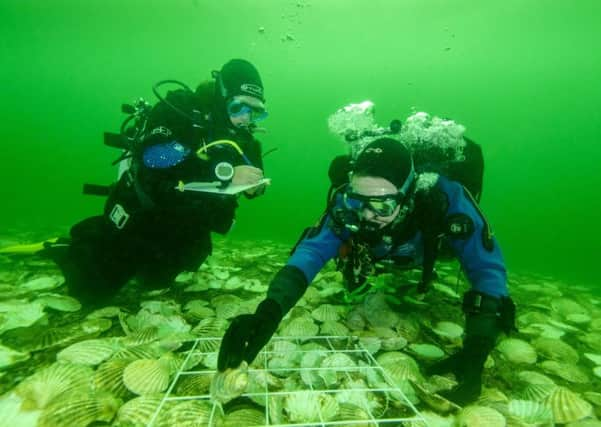Minimising environmental impact is a win-win for Scottish businesses


The company has built an anaerobic digestion plant at its Glenmorangie single malt distillery in Tain, Ross-shire, that purifies up to 95 per cent of the waste water that the distillery releases into the Firth.
The remaining 5 per cent of the organic waste is naturally cleaned by the oysters – nature’s ecosystem champions.
“The project’s vision is to restore long-lost oyster reefs to the Firth and to enhance biodiversity,” explains Dr Peter Nelson, operations director at The Glenmorangie Company.
“Over 10 years, 12 million tonnes of effluent has been treated, with a reduction of 45,000 tonnes of carbon dioxide from the discharge.
“Last year, the project partners placed 300 oysters in the Dornoch Firth’s protected waters, to confirm the species could survive. This year, a total of 20,000 oysters are being introduced into the sea near Glenmorangie’s Highland home.”
The company is one of ten businesses shortlisted for the ‘Best of VIBES – the Scottish Environment Business Awards’ – as part of the Awards’ 20th anniversary celebrations.
Glenmorangie won the VIBES Hydro Nation Award in 2017 and is also a VIBES sponsor.
Since they were established in 1999 the VIBES Awards have recognised more than 150 businesses in Scotland that are taking significant steps to improve or reduce their impact on the environment, typically making significant financial savings in the process.
Also on the Best of VIBES shortlist is Castle Group Scotland, construction industry contractor specialising in structural repair in sectors including utilities, marine, defence, road and rail.
Based in Bellshill, North Lanarkshire, the company has developed an environmental management system (EMS) based on the philosophy of ‘Giving the Past a Future’. This involves prioritising repair, restoration and refurbishment before contemplating rebuilding.
There is also a process to identify recycling and reuse options for materials that could be diverted from landfill.
“This has led to important circular economy benefits, including waste savings of £30,000 on our major structural refurbishment project at Aberdeen Music Hall,” explains Alan Ford, director of Castle Group Scotland. “The same project saw us reuse around 80 tonnes of rubble on site and save and donate 35 tonnes of wood to a local social enterprise for reuse as furniture.
“We divert over 90 per cent of waste from landfill, significantly more than the industry average, and have reduced our carbon impact by 40% over five years.”
Castle Group Scotland won the ‘Management’ category for small and medium enterprises in the 2012 VIBES Awards.
The Best of VIBES winner will be chosen by public vote. To read about all ten shortlisted companies and place your vote, visit the VIBES website here.